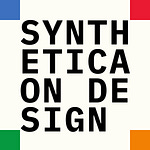Adrian Snodgrass's "Translating Tradition" explores the paradox of Japanese 'New Wave' architects who critique Western rationality while embracing advanced technology. The article connects this stance to Heidegger's philosophy of technology and Buddhist doctrines, suggesting that these architects aim to translate the unseen spiritual heritage of Japan into the language of technology. Snodgrass analyzes Heidegger's concept of "letting-be" as a way of coping with technology that neither rejects it outright nor embraces it uncritically, finding parallels in Buddhist teachings. The paper argues that these architects offer a "Middle Way" that merges the oppositions inherent in technological rationality, potentially leading to a transformation of technology itself, and a means to deal with its dominance. Ultimately, the piece investigates how tradition can be translated and preserved in a technologically advanced world.
Please note that the podcast covers key points from the source with synthetic voices, which may have glitches. It’s a reflective, not comprehensive, interpretation.
Snodgrass, Adrian. “Translating Tradition: Technology, Heidegger’s ‘Letting-Be,’ and Japanese New Wave Architecture.” Architectural Theory Review 2, no. 2 (1997): 83–104. https://doi.org/10.1080/13264829709478320.








